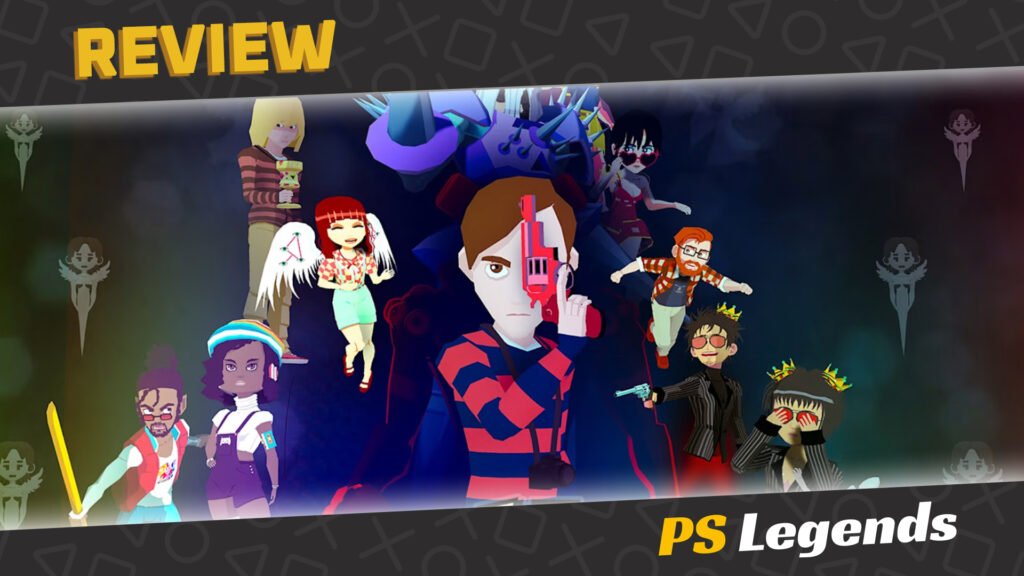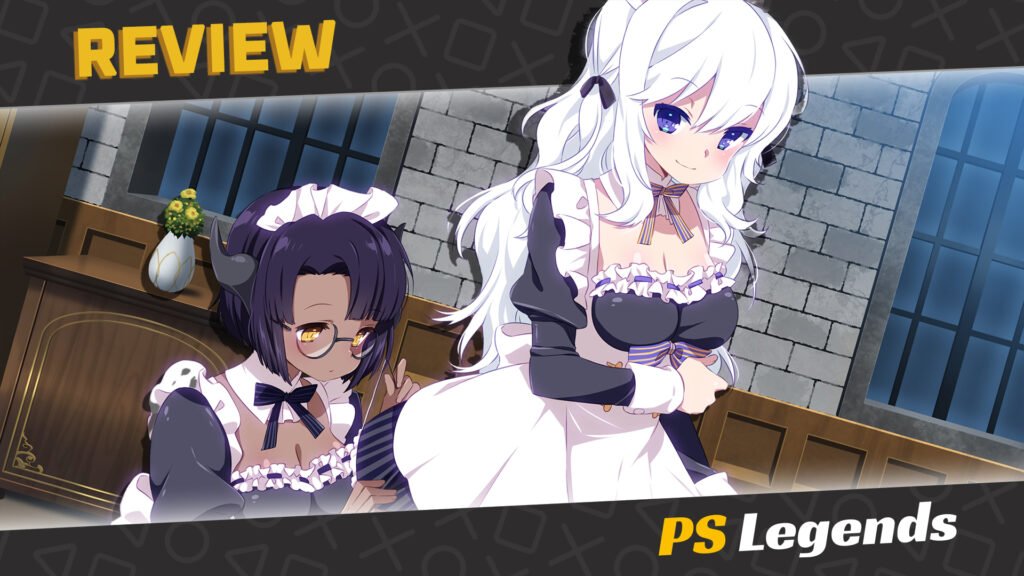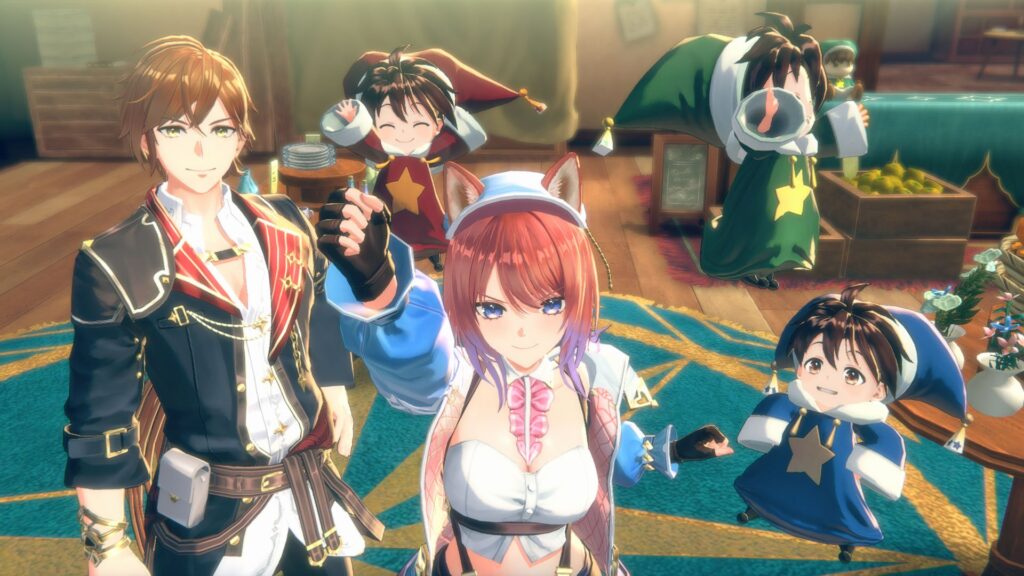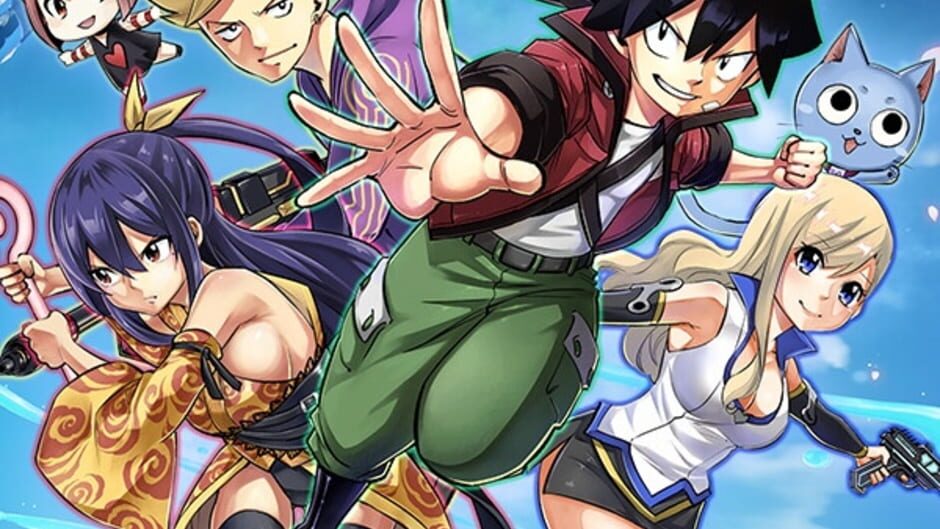Whenever I get a request to review a specific game, it’s nearly always due to my knack for targeting the controversial games out there and breaking them down to see what makes them tick. I have no difficulty in doing this. You see, games are really a reflection of their developers rather than their curious players. There’s a sort of unwritten rule that states we should review the games and not the players, which really should be common sense in this day and age.
Tempting as it can be to take a swing at folks with differing opinions (especially the more vocal variety), I’m here to talk about the games themselves, regardless of whether they’re good or bad, right or wrong. Today, I’m taking a look at a game that divided its audience, not so much in regards to the game’s quality, but moreso towards its edgy narrative agenda.
YIIK: A Postmodern RPG has previously been targeted by members of the right-wing media, accusing the game of having a ‘woke’ agenda by highlighting an ethnically diverse cast of characters of various gender identities and sexualities. However, the game would also highlight familiar subplots within its narrative which would surprise its audience in other, unexpected ways.
On This Page
Introduction
YIIK: A Postmodern RPG (meaning Y-2-K but playfully pronounced “Yeek”) is a turn-based role-playing game developed by American developer Ackk Studios and published by Ysbryd Games. The game was released on January 17th, 2019 for the PlayStation 4. It is an ongoing project, featuring occasional significant performance-altering patches.
The game began development in 2013, with brothers Andrew and Brian Allanson creating a fully-featured prototype in just 52 days for the showcase at PAX East 2013. YIIK was created as a form of catharsis for the Allanson brothers who were grieving the loss of their mother from cancer. The game would maintain a dark, cynical tone throughout, though some parts were softened to make them feel more “humanistic”.
Somewhat ironically, the game has also been accused of bad taste by integrating real-life world news stories into its narrative. The game was even criticised (without actually playing) by true crime YouTuber and podcaster Simon Whistler for its ‘distasteful’ reference of the mysterious death of mentally unwell travelling fashion blogger Elisa Lam.
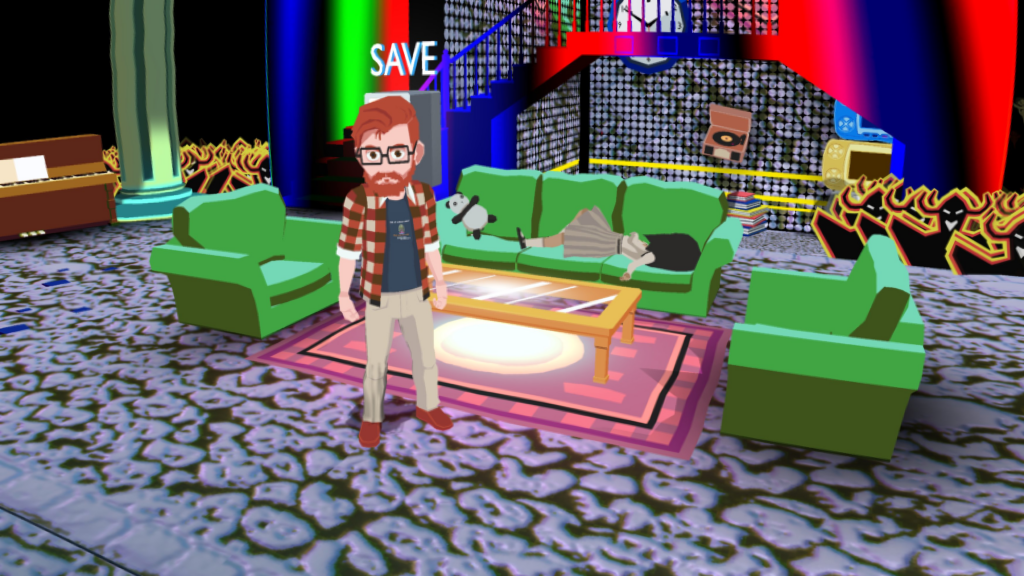
Version History
In 2020, Ackk Studios announced multiple free updates for the game that would improve the game’s combat mechanics while adding additional quality of life features. New content for its story would also be added through these updates under the titles of “Deviation Perspectives”. The first update was released in January 2021.
The second major update, dubbed ‘YIIK I.V’, was released on January 2nd, 2025. Changes include a new combat system that removes the rhythm minigames of the base game and introduces a new mechanic in the form of cards that can be equipped and used in battle, an expanded story introducing new characters and locations, as well as a redesigned ‘Mind Dungeon’.
The significant overhaul of the latest update has resulted in the patch being referred to as a ‘remaster’, ‘director’s cut’, and even a ‘remake’. The ‘I.V’ (1.5) version of the game has replaced the original release of YIIK: A Postmodern RPG on the PlayStation store. It features a new title screen and icons reflecting the I.V update, and comes at no additional cost to existing players.

Story
In what appears to be a bizarre dream, a young girl with only a limited selection of memories recovers her name, ‘Carrie’, only to quickly relinquish her name in exchange for a birthday party invitation where she hopes to find her elusive brother. Meanwhile, on April 4th (a date representative of the ‘404’ error message), 1999, Alex Eggleston returns to his hometown of Frankton, New Jersey. While out shopping, a cat steals Alex’s shopping list and leads him down a secluded path outside of town.
Here, Alex would have his first encounter with the paranormal as the cat would lead him to meet a beautiful young woman named Jocasta who displays abilities not unlike a succubus. She is able to twist and distort reality while charming Alex into doing her bidding. Jocasta teaches Alex how to defend himself in exchange for a sample of his blood. After awakening from what feels like a lucid dream, Alex finds Jocasta is gone and continues following the cat into a surreal abandoned factory.
The factory features more unexplained phenomena and distortions of reality, yet Alex periodically enters a trance-like state and is seemingly unable to see much of what is happening around him. He soon meets the eccentric Semi “Sammy” Pak living in the factory. However, in the factory’s elevator, Sammy is suddenly abducted by unseen otherworldly beings and vanishes before Alex’s eyes.

The next day, Alex returns to the factory with his neighbor Michael K, and they obtain photographic evidence of what Alex describes as “a being made of stars”. After uploading the photos to ‘ONISM1999’, a social media site pioneered by Michael, they are led to Vella Wilde, a familiar employee of the town’s amusement arcade.
Wilde identifies the beings as “Soul Survivors”, manifestations of souls that have left their realities in search of a physical form in another. To aid Alex and Michael in engaging with Soul Survivors, Vella gives them a phone number that allows them to access a metaphysical space known as the ‘Mind Dungeon’ which allows the group to unlock their true potential. Now, the group embark on a journey that bends the very fabric of reality in order to find out what really happened to Sammy.

Gameplay
YIIK is a 3D, turn-based RPG created as a homage to classic JRPGs of yesteryear. The game handles like a ‘golden age’ JRPG, utilising 3D characters and environments with a fixed camera angle. Locations are connected and accessed by traveling across the overworld map. Alex and his active party will be susceptible to enemy encounters when exploring ‘dungeon’ areas. There are six dungeons available in the game which are filled with enemies, traps, and simple puzzles.
The player controls a party of characters in turn-based battles using everyday objects as weapons. Different characters fulfil different roles in battle with a variety of moves and attacks, some better suited for offence, others for defending, while some are better suited for more supportive roles. The I.V update strips out the attacking mini games featured in the base game in order to make the combat flow much faster.
The new ‘Karta’ system allows party members to equip up to three cards which provide various buffs. These cards also act as temporary shields, allowing an attacked party member to block up to three incoming attacks which will disable a card once successful. When these barriers are gone, the character will then take damage to their HP pool which continuously decreases due to a ‘bleeding’ effect, making speed and defence every bit as important as attacking.
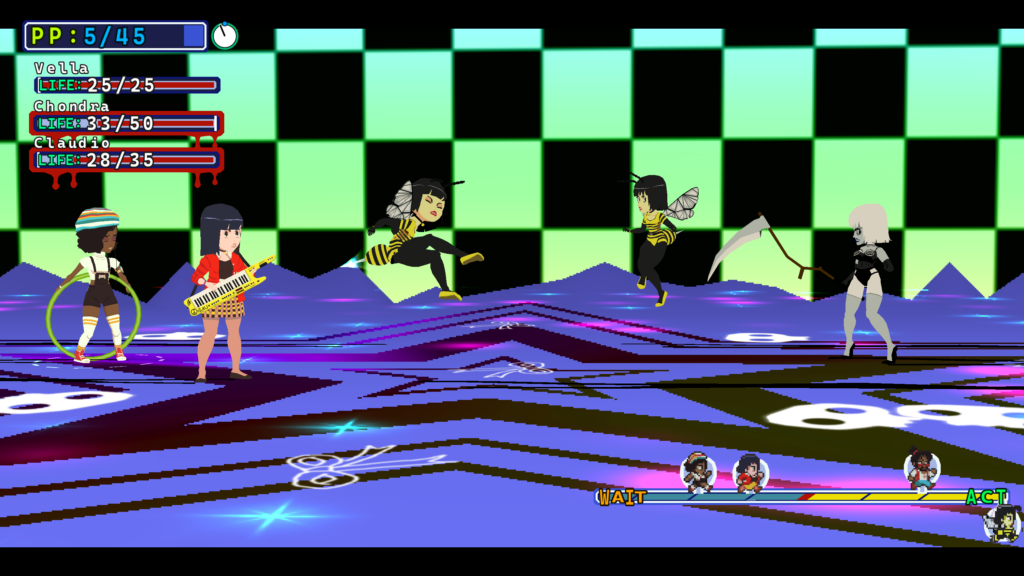
Graphics/Sound
Fitting in with the game’s setting, YIIK utilises a HD graphics engine which mimics late ’90s 3D graphics. Environments in particular are comprised of a collection of basic components reminiscent of PS1 and PS2 visuals. Character models feature fluid yet low frame-rate movements featuring a limited colour palette, yet every polygon is surprisingly well crafted and smooth.
For a game created with a limited budget, the inclusion of English voice acting is a very welcome addition. All major characters are voiced in English during cutscenes, featuring solid performances from some emerging new talent. It’s a small comfort when the game’s budget doesn’t really stretch to lip-syncing, and character animations that start well but seem to freeze or fizzle out as the rest of the cutscene plays out.
The impressive collection of over 200 individually produced tracks provides an intense score from a diverse variety of genres to provide an epic, eclectic soundtrack that’s on par with the likes of Jet Set Radio. Some haunting indie band and alternative genre songs scattered throughout the game work incredibly well in maintaining the game’s surreal and anarchic atmosphere.
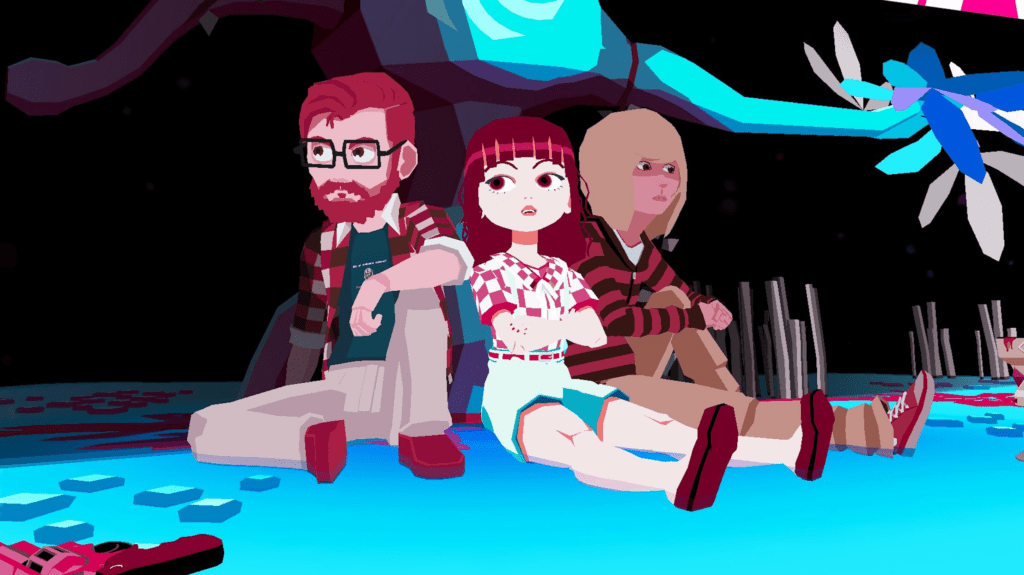
Analysis
It can be difficult to get one’s head around YIIK’s agenda, but that’s largely because the game doesn’t have one fixed goal, and instead comprises many, many confusing components. This can appear alien and impenetrable at first, but this is just the game’s way of testing the player’s dedication as we dive headfirst into the unknown. For a simpler explanation of the game’s ideologies, then look no further than the ‘References’ page on the main menu for a peek into the game’s many inspirations.
You see, YIIK intentionally pays homage (and even parodies) a hefty number of classic games and stories. At first, the game’s real-world setting with integrated elements of science fiction and fantasy feel very Shin Megami Tensei/Persona/Soul Hackers, yet YIIK’s main inspiration is older in origin, based on Nintendo’s elusive Mother/Earthbound series. Everything is a parody here; For example, instead of fighting Teenage Mutant Ninja Turtles, you’ll be battling Samurai Tortoises.
The word ‘pretentious’ gets thrown around a lot in other descriptions of the game, and I’m not sure that’s fair. YIIK actually holds its cards very close to its chest. It doesn’t thrust its surrealist narrative and style in our faces with intimidating advertising campaigns, but integrates these elements within a simplified real-world setting for us to peruse and ponder at our leisure.

Where the word ‘pretentious’ may apply, is with our main protagonist, young Alex. Despite rocking an impressive ginger beard which apparently some folks even take offence to, labelling him a ‘hipster’ in something of a weak attempt at needless image-shaming, Alex does a somewhat decent job of representing the cynical ‘everyman’, though his lack of ambition and work ethic cost him major relatability points.
Alex regularly interrupts the story to provide commentary on the day’s events, told as a metaphoric solo act, not unlike a gig at a comedy club or poetry reading. One could say these outspoken summaries replace what should be internal monologues, and Alex making himself the centre of the story overestimates his importance, and maybe there’s a sliver of truth in that, yet this is also a homage of sorts.
We never complained about those countless boxes of internal exposition from Squall Leonhart in Final Fantasy VIII, and such efforts help us digest the intricate specifics of the plot by giving us another, more personal perspective. It’s not strictly necessary, but it’s an inclusion that really helps simplify the complex narrative.

Conclusion
YIIK is an absolutely bizarre tale, though the game’s real-world setting and eclectic selection of characters make everything easier to digest. The game crams a hell of a lot of themes and references into its setting and narrative, yet produces an experience that’s so cohesive that the pros more than outweigh the cons, and the massive respectability easily outweighs the minor offences.
No, YIIK does not make a mockery of the tragedy that befell Elisa Lam, but rather pays homage to the mystery of it. The significant I.V update also gives us some extra polish here and there, with additional scenes before, during and after the main game, including a major canon sequel chapter, which flesh out the characters a bit more and expand on this twisted world hidden in plain sight.
Combat is also more simplified now, making it faster by removing the previous minigames. A standard playthrough will likely take around 30 hours to finish now, whereas a thorough, completionist playthrough will take closer to 35 hours. The game has never been easier to pick up and play, and will give you a lot to think about should you brave this quest. There’s never been a better time to give YIIK a chance to absorb you into its chaotic world.
Joys
- Major content expansion included
- Deep, twisted, and brilliantly dark storytelling
- Simplified combat and more characters than before
Cons
- The unambitious graphics aren’t likely to impress
- The deeply surreal story can be intimidating for many
